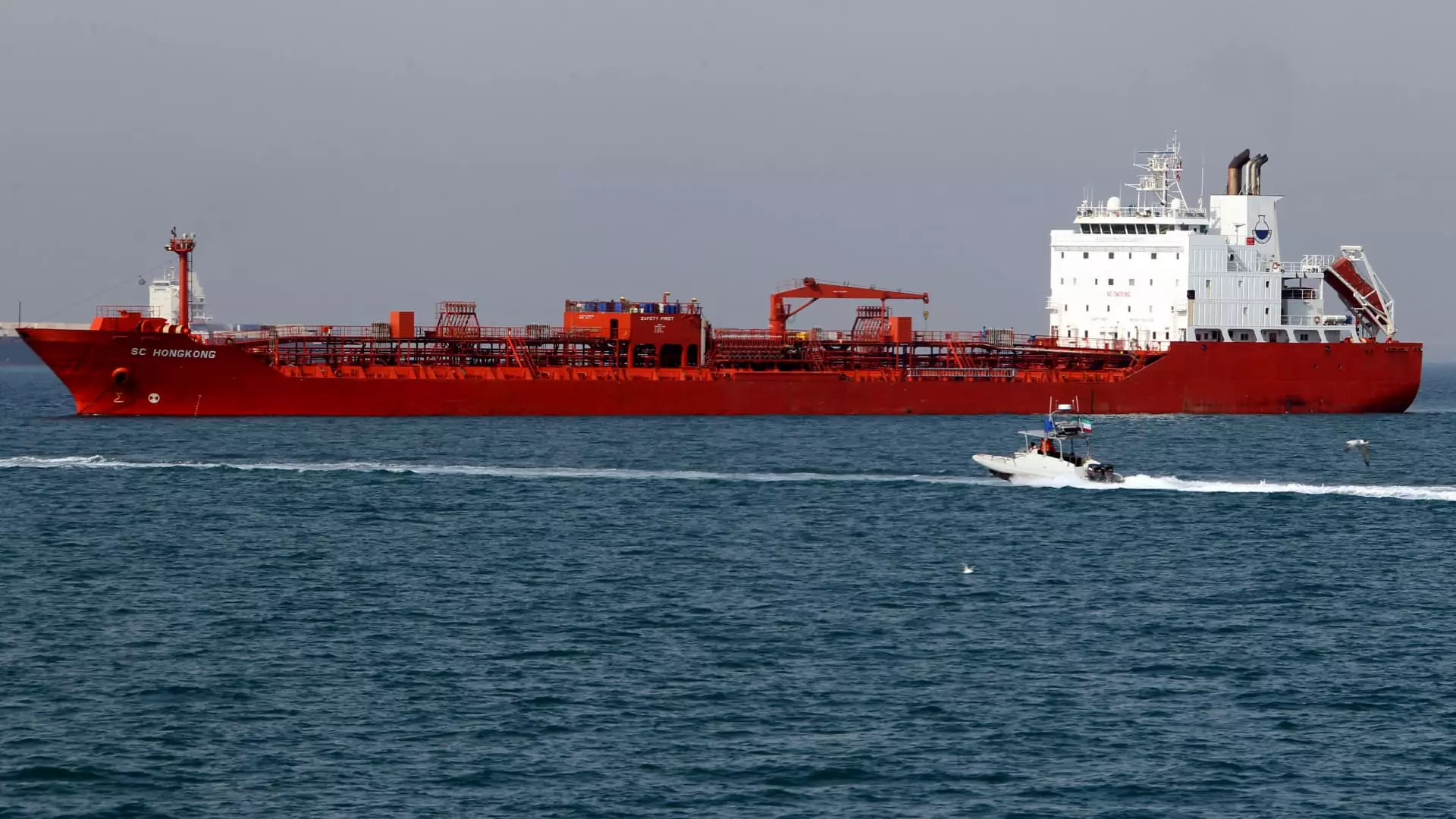The recent dramatic plummet in oil prices following President Donald Trump’s surprising remarks about Iran and China signifies not just a fleeting market fluctuation; it embodies a more profound shift in international relations and U.S. diplomacy. After years of a stringent “maximum pressure” approach toward Iran, Trump’s suggestion that China could continue purchasing oil from the Islamic Republic hints at a reevaluation of U.S. tactics. With Brent crude falling by an alarming 5.68% in response, it becomes strikingly clear that what underpins these numbers is not merely market forces, but rather the unpredictable waves of political strategy and the ramifications that ensue from them.
A signal that the U.S. might loosen its grip over Iranian oil exports is dangerous. Trump’s assertion, “China can now continue to purchase oil from Iran,” is loaded with implications that suggest a wider acceptance of Iran’s role in the oil market, threatening to undermine years of U.S.-led sanctions. It manifests a presidential penchant for leverage that prioritizes short-term gains, like lowering gas prices, over long-term stability—both regionally and globally.
The Ceasefire and Its Consequences
With a ceasefire agreement announced between Israel and Iran, the geopolitical landscape is as murky as ever. The strife in the Middle East is intricately tied to the oil markets, and as investors, we tread carefully, perpetually aware that any conflict could disrupt supply chains drastically. Initially, Israel’s military actions seemed to provoke fears of retaliatory measures from Tehran, which might threaten to cut oil exports vital to global supply. The paradox emerges: as tensions ease, oil prices too fall, but can we truly trust this newfound stability?
Iran’s retaliatory missile strike against a U.S. airbase in Qatar opened the door for negotiations instead of escalation, yet the coaxing of Tehran into a more passive role in the international oil scene raises eyebrows about the effectiveness of diplomacy executed in this fashion. Trump’s vocal discontent with both Israel and Iran is noteworthy, especially his admonitions directed at Israel. Such a stance not only illuminates the fickleness of alliances in this volatile region, but also indicates a troubling detachment from the traditional roles that power dynamics have played in Middle Eastern politics.
Market Vulnerability and Investor Sentiment
The oil markets have historically reacted to geopolitical unrest with heightened volatility—fear of disruption is a powerful motivator for market sentiment. The instant drop of 7% from previous closing prices points to a consensus among traders that the risks associated with the oil supply chain in the Middle East might be subsiding. But are we fooling ourselves into a false sense of security? The very notion of a low-risk environment disregards the history of abrupt escalations in this region. Traders ought to be more cynical, more discerning.
With 20% of the world’s crude passing through the Strait of Hormuz, any ongoing tensions or mishaps—be it military action or economic sanctions—have immediate repercussions on global oil prices. The reactionary tendencies of the markets reflect not just a technical analysis but an emotional and psychological engagement with the unfolding drama in the region. Should we be celebrating the newfound “peace,” or should we brace ourselves, understanding that even a hint of instability can reverberate through the global economy?
A New Era of Energy Diplomacy?
As the political chess match unfolds, it is essential to reevaluate the underlying motivations of these interactions. Trump’s approach, married to transactional diplomacy, may yield short-term benefits including lower oil prices and a semblance of stability. However, it risks normalizing a power dynamic that prioritizes immediate gains over enduring peace and equity. An acceptance of Iran’s oil exports by global superpowers potentially reintroduces a player once boxed in by sanctions, allowing for renewed leverage that may counteract American interests in the region.
Moving forward, it is crucial to interrogate the long-term consequences of such negotiations and alignments. Embracing a liberal viewpoint, we must recognize that achieving true stability in the Middle East isn’t merely about market dynamics or price fluctuations. Instead, it necessitates a broader commitment to genuine, sustainable peace and respect for all nations’ sovereignty—a lesson we seem perennially slow to learn. Rather than focusing solely on oil dynamics, the conversation must pivot toward comprehensive solutions that encompass human rights, environmental sustainability, and equity in international relations.

Leave a Reply